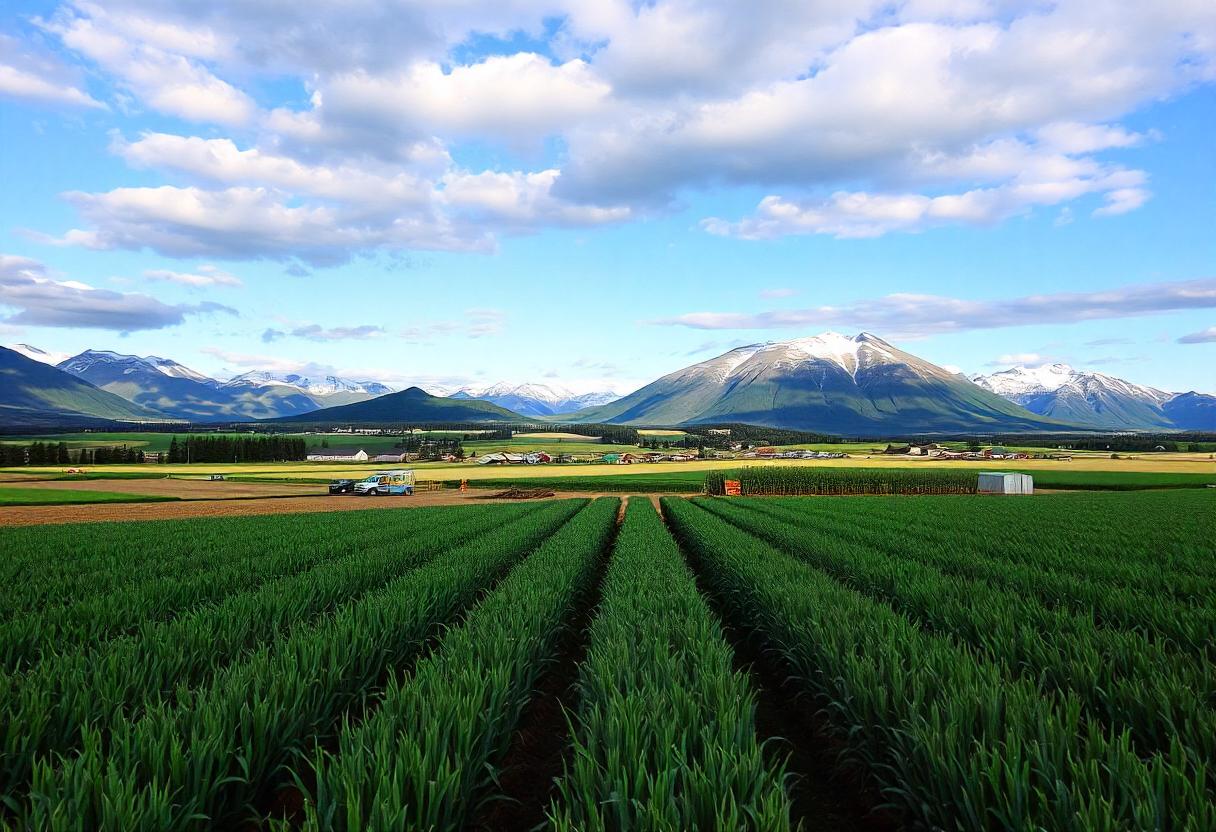
Canada is a country with a rich agricultural industry, offering numerous opportunities for individuals interested in working in the farming sector. With an Agriculture Visa, foreign workers can legally work on Canadian farms, contributing to the nation’s food production and supporting the local economy. Here’s a comprehensive look at the Agriculture Visa in Canada and what it entails.
What Is an Agriculture Visa?
An Agriculture Visa allows foreign workers to enter Canada and work in the agricultural sector. This visa is part of the broader Temporary Foreign Worker Program (TFWP) and is designed to meet the demand for labor in farming and related industries. Workers can fill positions such as planting, cultivating, harvesting crops, raising livestock, and maintaining farm equipment.
Who Is Eligible for an Agriculture Visa?
To apply for an Agriculture Visa, applicants must meet specific eligibility criteria, which typically include:
- A valid job offer from a Canadian employer in the agricultural sector.
- Proof of relevant work experience in agriculture or farming.
- A positive Labour Market Impact Assessment (LMIA) from the employer, proving that hiring a foreign worker won’t negatively impact the Canadian labor market.
Types of Jobs Available Under the Agriculture Visa
There are various types of jobs available under the Agriculture Visa, catering to different skill levels and experiences. Common job roles include:
- General farm laborer
- Greenhouse worker
- Livestock handler
- Fruit or vegetable picker
- Farm equipment operator
These roles are essential in ensuring Canada’s agricultural sector continues to thrive and meet domestic and international food supply demands.
How to Apply for an Agriculture Visa in Canada
The process of applying for an Agriculture Visa in Canada involves several key steps:
- Secure a Job Offer: Applicants need to receive a job offer from a Canadian employer in the agriculture sector. The employer must also obtain a positive LMIA to prove the need for a foreign worker.
- Submit an Application: Once the job offer is secured, applicants can submit their visa application online or through a visa application center in their country.
- Medical and Security Checks: Applicants may need to undergo medical examinations and security background checks as part of the visa process.
- Receive a Work Permit: Once the application is approved, the applicant will receive a work permit, allowing them to work in Canada legally.
Benefits of the Agriculture Visa
The Agriculture Visa offers several benefits for workers, including:
- The opportunity to gain valuable work experience in Canada.
- The possibility of earning competitive wages in a growing industry.
- Access to Canada’s social services, such as healthcare, while working in the country.
- Potential pathways to permanent residency through programs like the Agri-Food Immigration Pilot.
Challenges and Considerations
While the Agriculture Visa provides many benefits, there are also some challenges that applicants should be aware of:
- Seasonal Nature of Work: Many agricultural jobs are seasonal, meaning that workers may have employment only during specific times of the year.
- Physical Demands: Agricultural work can be physically demanding, requiring long hours, heavy lifting, and work in various weather conditions.
- Visa Expiration: Workers need to ensure that they follow the terms of their visa and apply for extensions if necessary